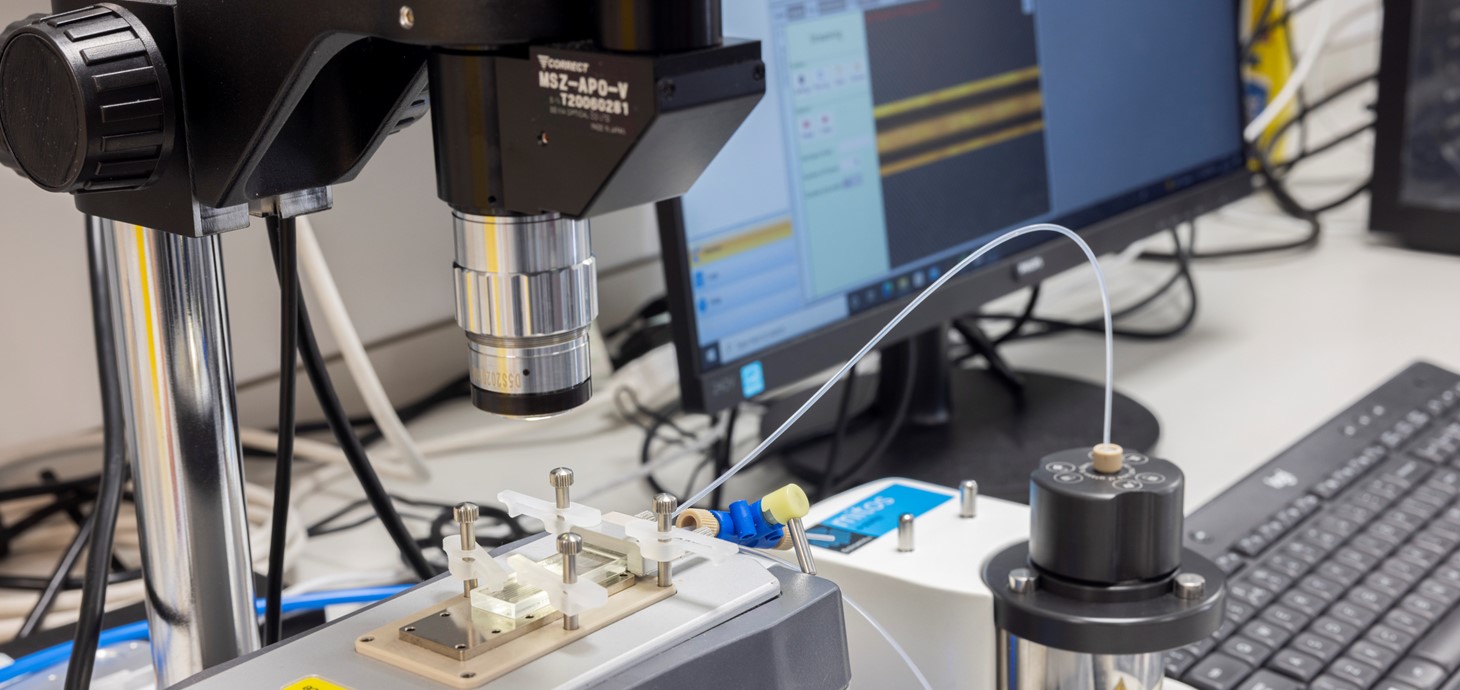
The μ-rheometer evaluates liquid properties such as viscosity using fingerpick samples in the shortest time possible.
New diagnostic tool could deliver health test results in two minutes using fingertip sample - researchers develop proof of concept.
Scientists at Swansea University developing a platform that would use Artificial Intelligence to speed up the process of detecting biomarkers in biofluids have shown that the concept could work. It would mean faster test results for health conditions such as cardiovascular disorders, joint quality, and Alzheimer’s.
This new diagnostic tool could revolutionise the healthcare sector due to the application of a form of artificial intelligence (AI) – machine learning (ML). The implementation of ML has meant it is possible, for the first time, for results to be delivered within minutes.
Biofluids such as synovial fluid, blood plasma, and saliva contain proteins that are an important biomarker for the diagnosis of several health conditions. The specially designed platform has been programmed to detect the concentration of these proteins to assist in diagnosis and monitoring disease progression.
The research proposes that hospital waiting times could be drastically cut and the option for self-screening and self-monitoring is now possible with the potential for at-home diagnostic kits in the future.
Project lead, Dr Francesco Del Giudice, comments:
“Existing technologies for the measurements of macromolecules in biofluids are limited; they require a long turnaround time, or require complex protocols, thus calling for alternative, more suitable, methodologies aimed at such measurements.
"In our research, we looked at whether we could rapidly detect different concentration of macromolecules in solution at different temperatures using only 100 mL of sample (equivalent to 2 drops of blood). The key innovation is the fact of providing a result within 2 minutes, which is a leap forward compared to standard testing that can take several hours.
"What this means for the future is that our proof-of-concept study can be further developed in a tool to help clinicians making decisions on clinical data obtained quickly. We also foresee to develop this further for an at-home-point-of-care self-screening diagnostic platform.”
Dr. Claire Barnes, co-author on the work, comments:
“The ability of Artificial Intelligence to drive down the time required to complete various tasks has been demonstrated across a number of disciplines. The advantage of speed offered by the implementation of machine learning allowed us to adjust almost in real-time the experimental parameters to fulfil the requirements of the theoretical model associated with this work.
"Whilst at present we employed machine learning for the purposes of automating our work, the ability to use large amounts of data to imitate aspects of human intelligence and reasoning, allowing a system to learn, predict and make recommendations, is something we would like to explore further and will form the basis of our future work in this area.”
The paper, Rapid Temperature-Dependent Rheological Measurements of Non-Newtonian Solutions Using a Machine-Learning Aided Microfluidic Rheometer, is published in Analytical Chemistry.
The IMPACT operation is part-funded by the European Regional Development Fund through the Welsh Government and Swansea University.
